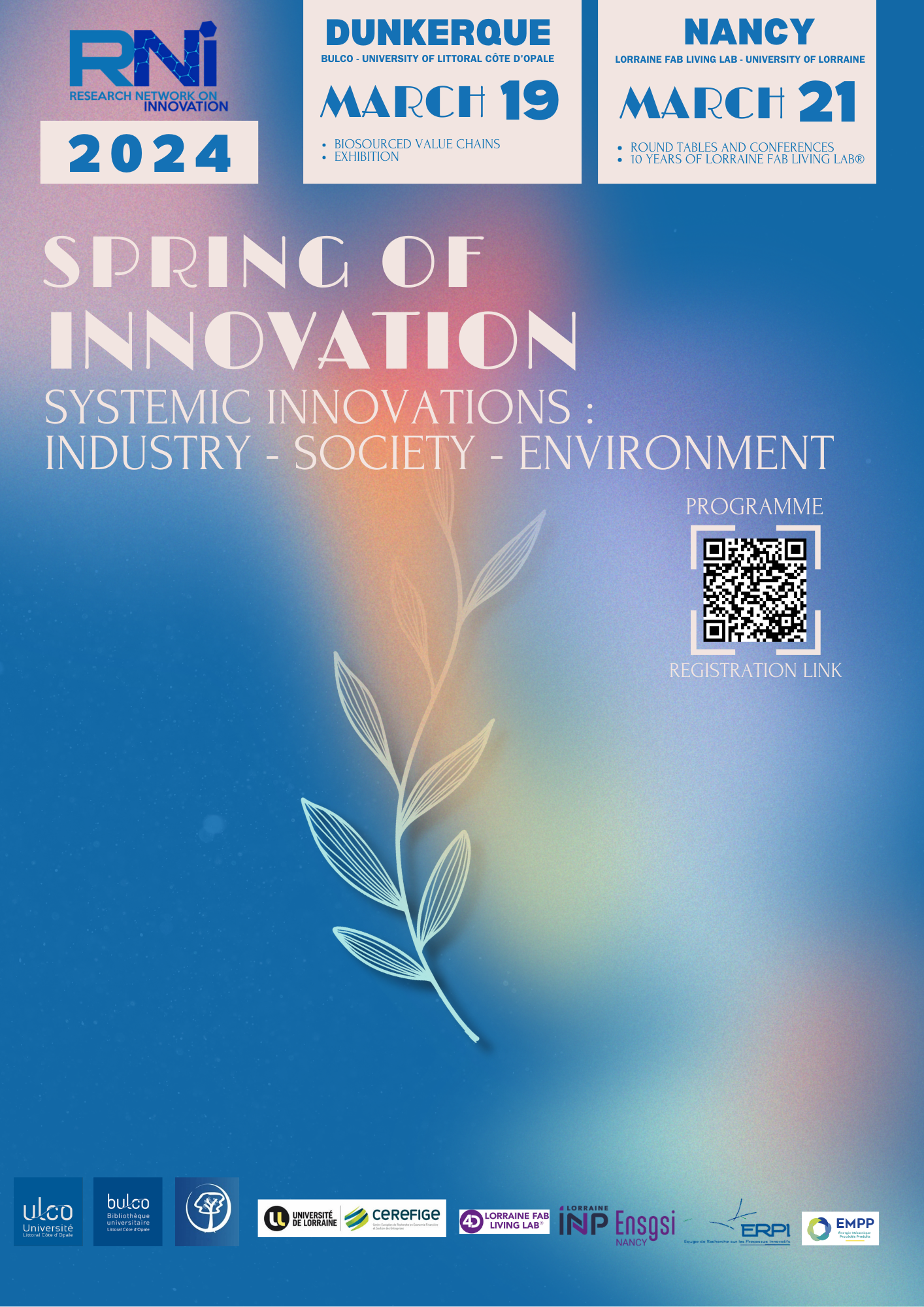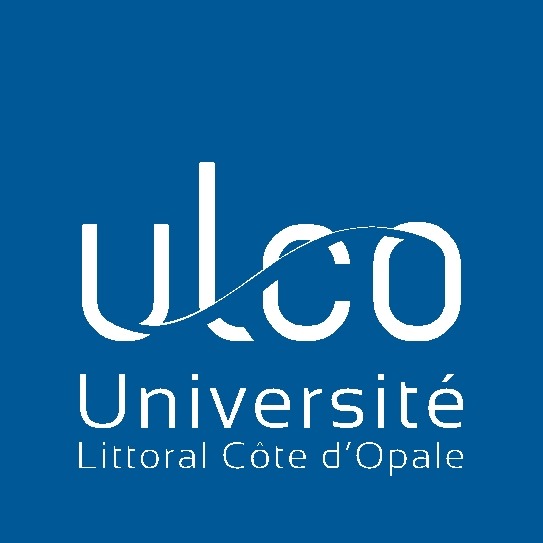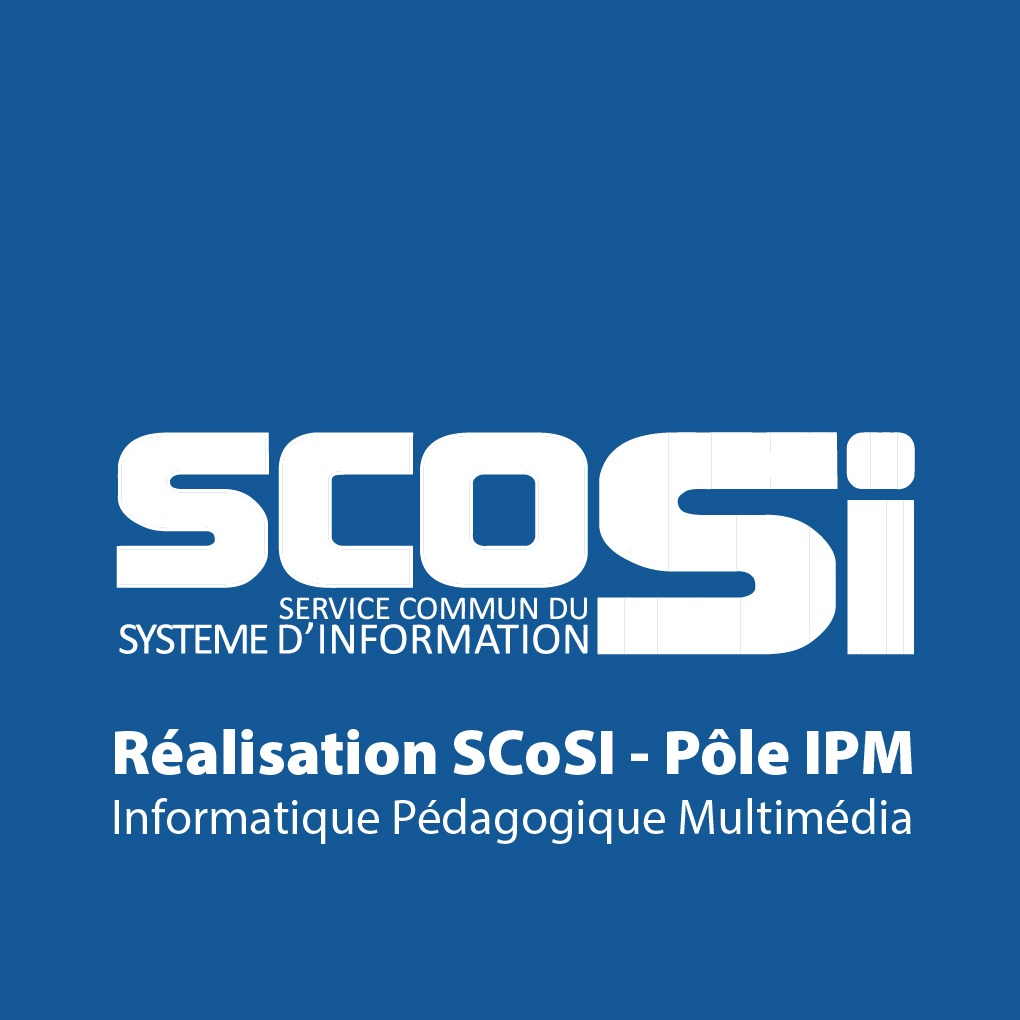Systemic innovations: industry, society, environment
Description
The systems approach may be a key response to rethinking current models for organizing human activity in a context of climate change (Uzunidis et al., 2021). It refers to collaborative and mutualized management of the development of a territory, a sector, an industry, a project, a resource, etc., involving various stakeholders in an integrated and cross-disciplinary approach. Systemic innovations involve innovative solutions that emerge when these different entities (individuals, companies, society, etc.) interact in a synergic way to create larger systems.
There are many models of systemic innovation, starting with the well-known: industrial symbioses stemming from industrial ecology practices (Kasmi, 2021) and, more broadly, the circular economy (Vence et al., 2022), eco-neighborhoods, short food supply chains, innovation ecosystems (Baldwin et al., 2024; Laperche et al., 2019), and public-private-population partnerships (PPPs) (Dupont et al., 2015). These examples share the common feature of operating with the aim of guaranteeing a balance between the development of human activity and the preservation of the natural ecosystem. The systemic approach is becoming increasingly popular and is spreading to other fields such as, other pillars of the circular economy like the economy of functionality (Merlin, 2024), the social and solidarity economy, the bioeconomy (Debref & Vivien, 2021; Debref et al., 2022), agriculture (Matt, 2023a, Matt, 2023b), distributed urban manufacturing, FabCity projects (Diez & Posada, 2013; Moritz et al., 2016), collaborative innovation spaces (fablabs, living labs, third places, among others) (Kasmi et al., 2022; Morel et al., 2018), etc.
The aim of this scientific event is to examine, both from a theoretical and practical standpoint, how systemic innovations emerge: how are stakeholder relationships constructed, with an emphasis on both contractual and more subjective dimensions based on trust (Bornarel et al., 2024)? How are shared objectives defined? What forms of governance are at stake in generating these systemic innovations, whatever their form (technological, or more organizational and social)? Another aspect of the question lies in the impact of systemic innovations: how are they transforming various fields, from ecology to digital technology, economics, engineering and the social sciences? How can we study and support these transformative and growth-generating innovations, and participate in the co-creation and development of new circular economy models in sectors and territories (Laperche et al., 2024)?
Conference objectives
The Spring of Innovation 2024, organized by the Research Network on Innovation, takes place on March 19 in Dunkirk and on March 21 in Nancy (France). The ISI/LabRII of the Université du Littoral Côte d’Opale, and the ERPI and CEREFIGE of the Université de Lorraine, lead laboratories of the RNI, have joined forces to cross-fertilize their work in innovation economics, management and engineering.
The theme of the conference is systemic innovations and new circular economy models, including the following topics:
- The importance of the circular economy in building resilient industries and territories, and the role of systemic innovations.
- Understanding the foundations of systemic innovation (stakeholder relations, trust, new organizations).
- The role of open innovation and co-creation ecosystems in the development of sustainable systemic innovations.
- Systemic and sustainable innovations in practice in territories and sectors: economic, social, technical, political (in the sense of public policy) and environmental advantages and limitations.
- The role of public policy in promoting the circular economy and systemic innovations in industries and regions.
The conference will be held in French and English, and will give rise to the publication of special issues in Innovations, Revue d’Economie et de Management de l’Innovation, Technologie & Innovation, Galician Journal of Economics and a book in English in the Innovation in Engineering and Technology series, Wiley / Iste.
March 19th 2024 – DUNKIRK
08h30 – Opening
9h00 – Introduction
9h30/12h00 – Innovation Rally
12h /13h – Master of Innovation Management graduation ceremony -SIDE
14h30/15h – Introductory lecture: Dimitri Uzunidis (Honorary President RNI), The foundations of systemic innovation
15h/17h30 – Round table : Les filières de production de la bioéconomie : quelles innovations systémiques ?
17h30/17h45 – Synthesis of the day: Sophie Boutillier (ISI/Lab.RII, ULCO, RNI)
18h – Vernissage Exhibition Naturalis Causa – Presentation of the book “Naturalis Causa. Impressions et expressions imagées”, Magna Carta, Paris
March 21rst 2024 – NANCY
08h30 – Opening
9h00 – Introduction
9h30/10h30 – Plenary session – Keynote speaker: Muthu De Silva (Birkbeck, University of London, OECD)
10h30 – Coffee break
10h45/12h15 – Round table 1: Circular economy and systemic innovation for sustainable industries and territories & Workshop: Trust, Innovation and Organizational Renewal
12h30/14h – Lunch Break
14h/15h – Plenary session – Keynote speaker – Patrick Cohendet (HEC Montréal)
15h15/17h – Round Table 2: Co-creation ecosystems for systemic and circular innovation & Workshop: Trust, Innovation and Organizational Renewal
17h /17h15 – Summary and conclusion
17h15 – Celebration of the 10 years of the Lorraine Fab Living Lab



